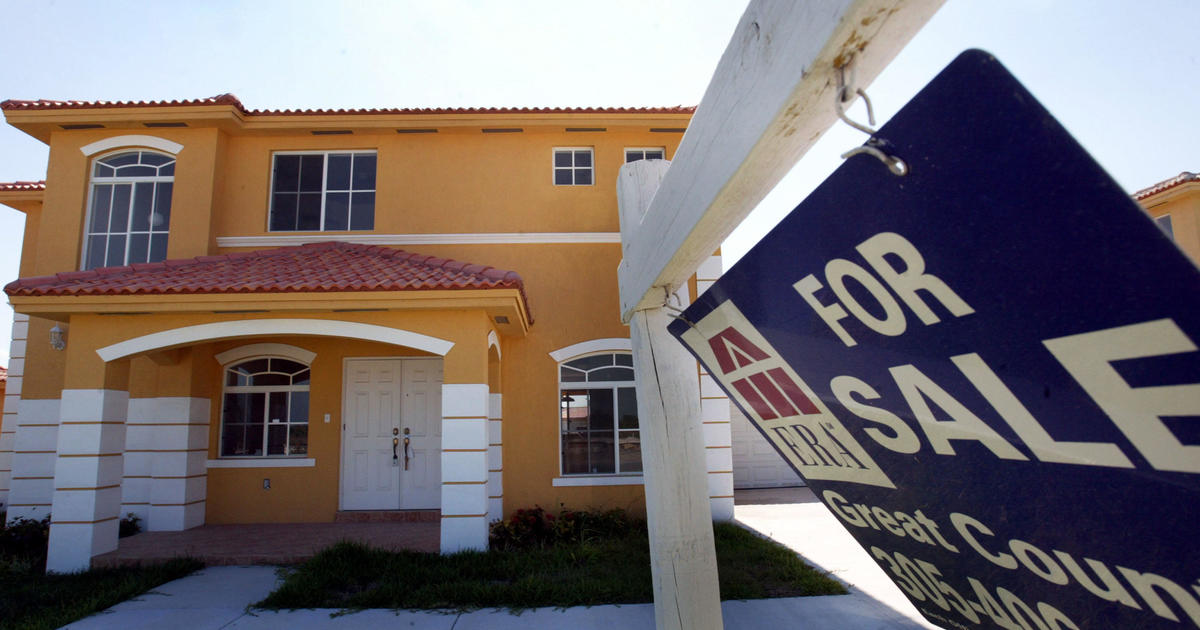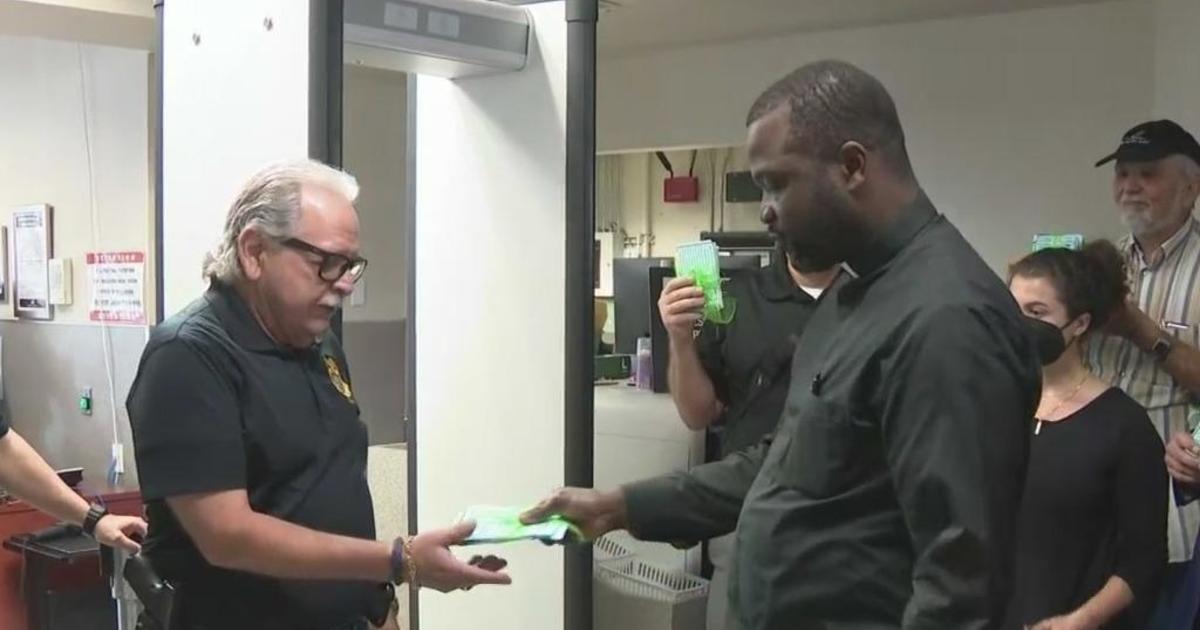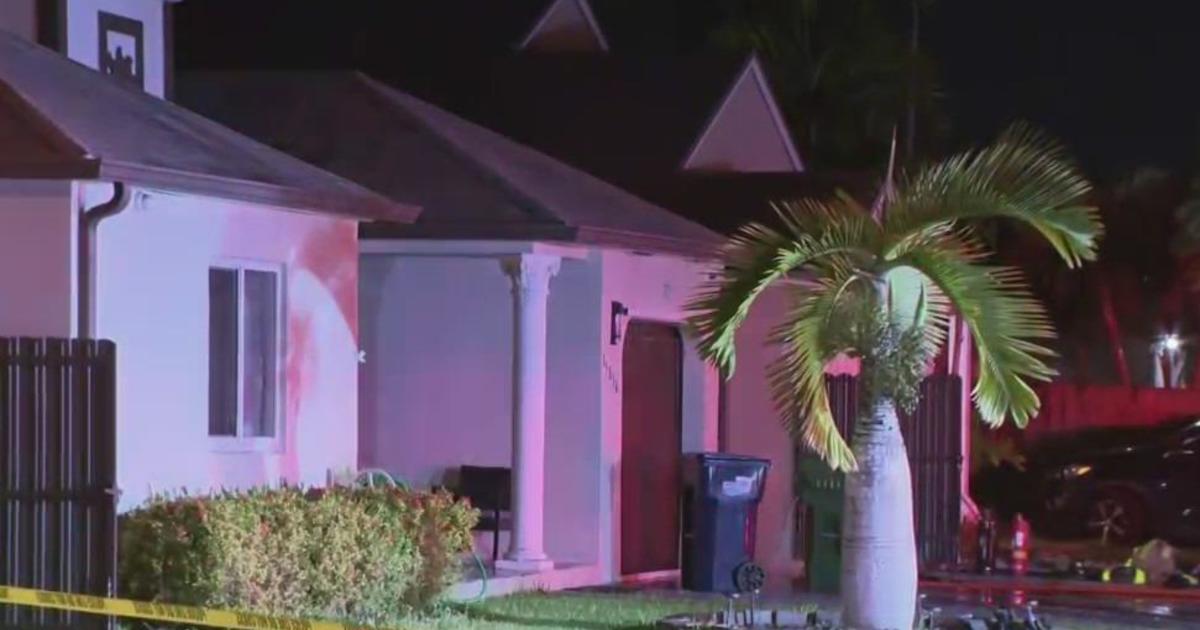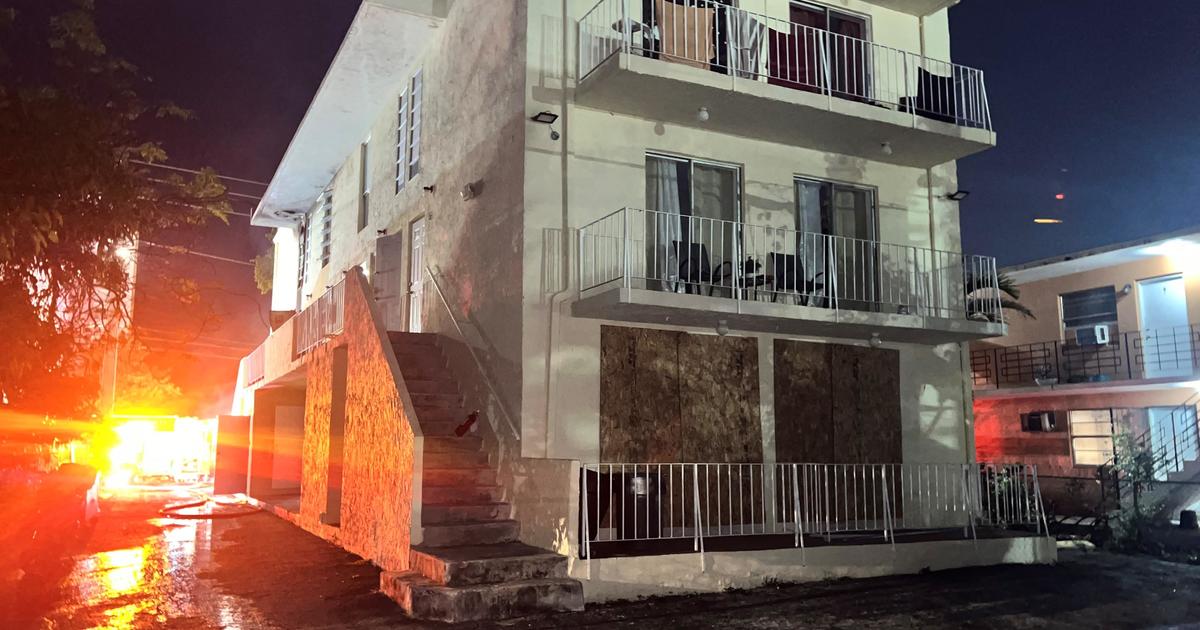MDFR Prepared For Radiological Emergency, Just In Case
DORAL (CBS4) -- Concern over nuclear meltdowns in Japan has sparked concern of potential radiation contamination here in the United States. While the threat of radiation in South Florida from Japan's nuclear crisis is virtually non-existent, Miami-Dade Fire Rescue wants the public to know they are prepared just in case something happens in the future that does affect South Florida.
Most people are a bit nervous about radiation because we can't smell it, taste it, touch it or feel it. So what can you do to protect yourself and how would Miami-Dade Fire Rescue respond?
Those are some of the questions answered Tuesday morning as Miami-Dade Fire Rescue personnel showcased radiological emergency response procedures during a demonstration at their headquarters in Doral.
During a mock radiation exposure drill, MDFR HazMat specialists explained the different types of decontamination procedures and showed off the personal protective equipment and sophisticated meters used by rescuers.
In Tuesday's drill, procedures were put into action when a car was exposed.
Specialists explained how they remove contamination from the vehicle, survey the occupant to see if she has any radiological contamination on them and screened for the specific location of the contamination.
Capt. Edward Erickson of Miami-Dade Fire Rescue said the most common places of radiological contamination are hands and feet.
In this case, if this was a real scenario; the woman in the contaminated vehicle would be washed down and her clothes thrown away.
While this exercise was a refresher for Miami-Dade Fire Rescue personnel in the wake of the Japanese earthquake, tsunami and nuclear power plant problems, do you know what to do in case of any emergency?
Here's the answer from Capt. Erickson, "Time, distance and shielding. Time; if you reduce the amount of time you spend near a radioactive source, you'll be safer. If you increase the distance from that source, you'll be safer and if you use shielding, some sort of barrier (you'll be safer.)"
Miami-Dade County has systems in place in case of a radiological emergency. They'll use the news, public address system or reverse 911 systems, that will give specific instructions on what you need to do.



